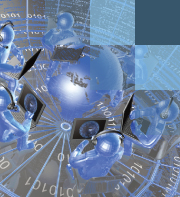MSc Professional Development (Applied Neuroscience in Organisations) - Case Studies
The case studies below provide summaries of successful Work - based research undertaken by students on previous masters Neuroscience in Leadership programme.
Case Study 1
Building empathy in Public Sector Leaders
A 360 degree survey of public sector leaders showed high levels of intellectual leadership and skills (IQ) but lower levels in relationship based leadership skills (EQ). This was considered a problem for public sector workplaces. A programme was designed to test and build leadership empathy skills. Leaders were given face to face training in empathy and then asked to complete a written exercise taking the perspective of 4 team members per week, over a 4 week period, prior to a meeting with each team member.
Both leaders and their direct reports completed ratings of leader effectiveness before and after the activity period. The outcome was an increase in leader’s empathy skills, as measured by self-assessment and team member assessment.
This has led to the development of training programmes for senior public servants.
Case Study 2
The effects of targeted training on emotional intelligence
A management consultant agreed a project proposal with his client, a leading health and wellbeing resort. The focus of this research project centered on the Emotional Intelligence (EI) of leaders in the organisation and on how a targeted training of brain functions, emotions, and behaviors may improve Emotional Intelligence (EI). To determine the EI Quotient before training, the participants completed the Mayer-Salovey Caruso Emotional Intelligence Test (MSCEIT 2.0, Mayer et al, 2003).
Within six weeks after conclusion of the training seminar delivered to half the leaders, all participants repeated the MSCEIT 2.0. A statistically significant difference (p<0.05) in the total EI score and the sub-category of Emotion Regulation was determined between the group of leaders with training and the control group without training.
The study revealed furthermore, that participants regarded the training of EI highly, and saw it as augmenting their careers as well as their personal development. It was concluded that reducing emotional stress in the highly stressful environment of operating a luxury resort may have provided additional motivation for the participants, spurring the learning effect.
As a result of the study it was proposed that different strategies to develop and conduct training in EI might be adopted for particular groups. The results suggested the usefulness of an EI test to identify specific needs and maximize the utility of EI training for attendees and their organisations.
Case Study 3
Increasing creative insight through brain training
Creativity is increasingly seen as vital to competitive advantage, and leaders are under increasing pressure to deliver creative solutions. Neuroscience is contributing new insights into creativity and the brain. This research aimed to investigate the effect brain training, attentional focus and emotional state, has on creative insight, by establishing if teaching people about brain regions that fire during insight and focusing attention in this area, could induce higher incidences of insight above what could be achieved by inducing positive mood. It also tested if people can control brain focus to increase moments of insight.
The online experiment used RCT methodology, a neuroscience lesson and activity, positive mood video, CRA creative insight task and current mood assessment.
Results indicated people who took brain training solved more problems correctly across each creative insight area (immediate insight, delayed insight and exploration). Differences in problems solved through insight were not significant and mixed responses to videos and technical problems are likely to have impacted results. While we cannot yet conclude people can deliberately manipulate their brain through learning and attentional focus, this study paves the way for further research. A longitudinal intervention study targeting neuroscience training and attentional focus will be conducted online in February 2014.
Return to Applied Neuroscience in Organisations




